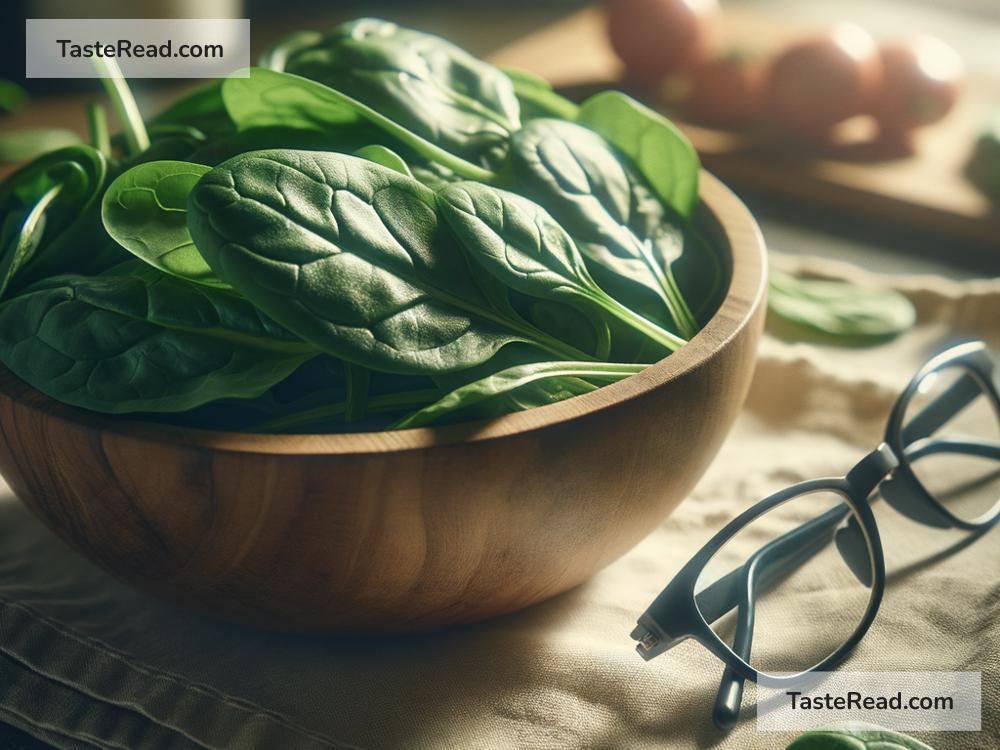Spinach-Derived Lutein and Its Impact on Eye Health
Spinach isn’t just great for salads or adding a pop of green to your plate; it’s a nutrient powerhouse that offers exceptional health benefits, especially for your eyes. One of its secret weapons is lutein, a powerful antioxidant that plays a critical role in maintaining good vision and protecting your eyes from diseases. Let’s dig deeper into what lutein is, why it’s important for your eyes, and how spinach can be a game-changer in your diet.
What is Lutein?
Lutein is a type of antioxidant found naturally in plants, especially in dark leafy greens like spinach. It belongs to a group of nutrients called carotenoids, which are responsible for giving vibrant colors to fruits and vegetables. Carotenoids also play a vital role in improving human health.
Lutein has a special connection to your eyes. It’s concentrated in the retina, particularly in a part called the macula, which is responsible for sharp, central vision. Because of its unique properties, lutein acts like a natural sunscreen for your eyes, filtering harmful blue light and reducing oxidative stress.
Why Eye Health is Important
Our eyes work hard every day. Whether it’s reading, driving, or staring at computer screens, our vision helps us navigate the world. But over time, factors like aging, UV light exposure, and screen time can wear down the health of our eyes. Some people may experience vision problems like macular degeneration and cataracts, which are common conditions as we age.
Taking care of your eyes requires more than just glasses or contact lenses. Proper nutrition can play a key role in slowing age-related vision issues and keeping your eyesight healthy for years to come. That’s where nutrients like lutein step in.
How Does Lutein Benefit Your Eyes?
Lutein has several protective benefits for your eyes. Here’s how it works:
1. Filters Harmful Blue Light
These days, we’re exposed to blue light almost everywhere—from smartphones and laptops to LED lights. Blue light can be harmful to the cells in your eyes over time. Lutein helps absorb and filter some of this blue light before it reaches sensitive areas of your retina. This lowers the risk of damage and eye strain.
2. Protects Against Oxidative Stress
Similar to other parts of your body, your eyes are susceptible to oxidative stress—damage caused by free radicals. These unstable molecules can harm your vision and lead to conditions like macular degeneration. Lutein acts as an antioxidant that neutralizes free radicals, protecting your eyes from long-term damage.
3. Supports Macular Health
Age-related macular degeneration (AMD) is one of the top causes of vision loss in older adults. Lutein builds up in the macula, the part of your retina responsible for central vision. Having a good supply of lutein can improve macular pigment density, which lowers your chances of developing AMD.
4. Reduces Cataract Risk
Cataracts occur when the lens of your eye becomes cloudy, which can interfere with your ability to see clearly. Studies suggest that people who consume higher amounts of lutein are less likely to develop cataracts. This makes lutein an important nutrient for keeping your vision sharp as you age.
Spinach: A Natural Source of Lutein
Spinach is one of the best sources of lutein. Just one cup of cooked spinach contains around 20 milligrams of lutein, which is enough to support your eye health. Unlike supplements, lutein from spinach comes in its natural form, along with other vitamins and minerals that benefit your overall health.
An added benefit of spinach is that it’s rich in other eye-friendly nutrients, such as:
- Vitamin A: Essential for maintaining good vision and preventing night blindness.
- Vitamin C and E: Both are antioxidants that protect your eyes from oxidative damage.
- Zeaxanthin: Another carotenoid that supports eye health and works alongside lutein.
Simple Ways to Add Spinach to Your Diet
Adding spinach to your meals is easy and delicious. Here are a few ideas:
- Smoothies: Toss a handful of fresh spinach into your morning smoothie. You’ll barely taste it, but your eyes will thank you.
- Salads: Use spinach as a base for your salad instead of lettuce for an extra nutritional boost.
- Soups and Stews: Add spinach to soups, stews, or chilis. It cooks quickly and blends well with most dishes.
- Egg Scrambles: Mix spinach into scrambled eggs or omelets for a healthy breakfast.
- Pasta and Rice: Stir fresh or cooked spinach into pasta or rice for added color and nutrients.
Should You Consider Supplements?
Although spinach is an excellent natural source of lutein, some people may choose supplements for convenience or to ensure they’re meeting their nutritional needs. If you decide to go this route, it’s best to talk to your doctor first, especially if you have existing medical conditions.
Final Thoughts
Spinach-derived lutein is a natural and powerful ally for your eyes. It protects against harmful blue light, fights oxidative stress, and reduces your risk of common eye problems like macular degeneration and cataracts. Including spinach in your diet is a simple and effective way to boost your lutein intake and keep your vision healthy for years to come.
Next time you’re at the grocery store, grab some fresh spinach and start incorporating it into your meals. Your eyes will thank you!


